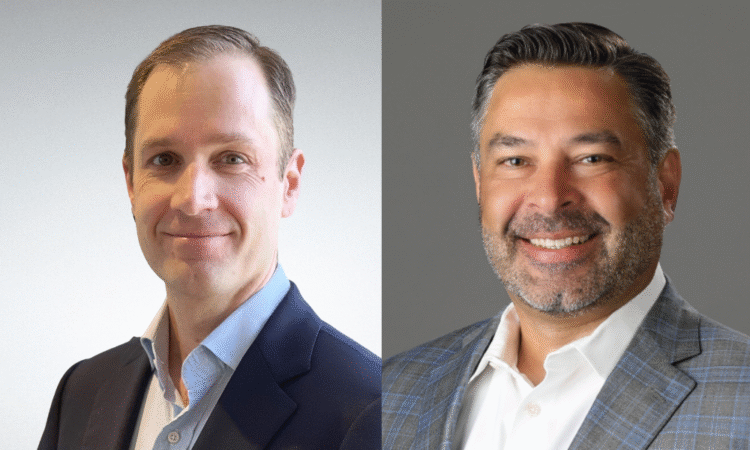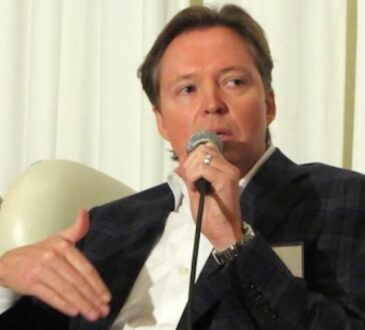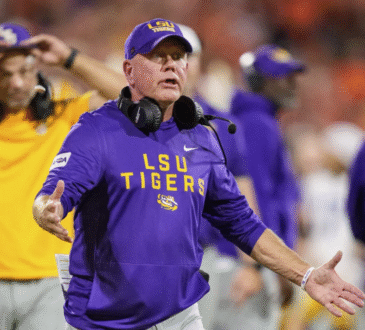CEO change at Edelman Financial Engines shows how private equity is reshaping industry

From left: Edelman acting CEO Ralph Haberli, who succeeds Jay Shah [right] after two years
From on-off sale talk to organic growth rate rumors, what’s going on at $308 billion RIA?
Edelman Financial Engines is navigating its fourth CEO transition since Hellman & Friedman acquired a controlling stake in 2015, with its latest leadership change coming shortly after Edelman’s private equity owners reportedly decided to halt efforts to sell the mega-RIA.
One of the largest independent wealth managers in the United States, Edelman Financial Engines (EFE) manages $308 billion in assets across 1.3 million clients with over 430 advisors and 140 offices. In June, both Semafor and Citywire reported that Edelman’s private equity owners — Hellman & Friedman and Warburg Pincus — were considering selling the RIA to a strategic acquirer. Semafor reported Edelman’s asking price was $8 billion.
Creative Planning is one of the few mega-RIAs operating at a similar size to Edelman Financial Engines. Creative Planning CEO Peter Mallouk mentioned Edelman’s reported sale process in his Oct. 10 keynote session at DeVoe’s M&A Succession Summit in Chicago. “We’re starting to see it play out, where the bigger firms go to market, and they’re [Edelman] not the only ones where they go to market, they test the waters then they exit,” said Mallouk.
“I think you’re going to see big firms go to market and the multiples are not going to hold,” Mallouk said. “We just saw this week in the Citywire publication that Edelman came off the market. And according to the story, it was because of flows and growth and things like that, so they couldn’t clear the multiple they wanted to get.”
Changes in leadership
On Oct. 8, Citywire reported that Hellman & Friedman and Warburg Pincus decided to stop their sale process of Edelman, with then-CEO Jay Shah writing an internal memo to Edelman employees dated Aug. 27 to share the news. On Oct. 14, just one week after Citywire’s published story, EFE named president Ralph Haberli as acting CEO, with Shah stepping down to serve as an advisor through the end of the year. Shah had previously been hired as EFE’s CEO in May 2023, and he detailed his decision to leave EFE in a personal LinkedIn post accompanied by the company’s press release.
“Hellman & Friedman and Warburg Pincus started putting out feelers about selling EFE in June,” Corey Kupfer, founder and managing partner at RIA M&A law firm Kupfer, told InvestmentNews. “They took it off the market in October, which is very quickly. So, clearly, they got feedback from the market that had them decide it is not the best time to sell, as they would not be able to get the valuation they wanted. The word is that organic growth rates not being high enough was a large factor.”
Before joining EFE, Shah was CEO of Personal Capital, a digital RIA that was acquired by retirement services provider Empower in a 2020 deal valued up to $1 billion. Before Shah, Larry Raffone had an eight-year stint as CEO of Edelman Financial Engines. Ryan Parker, who now leads EP Wealth Advisors, was EFE’s previous CEO for roughly two years starting in 2016 following his succession of founder, Ric Edelman.
“The largest organic growth opportunity to EFE is to capture more individual wealth management business from the participants in the many retirement plans it manages,” Kupfer said. “After the recent market feedback on the potential EFE sale, it seems that the PE firms feel like Ralph Haberli is better suited to lead the organic growth-focused strategy at this time. “
Kupfer noted Hightower and Focus Financial Partners as other private-equity backed RIA giants who have experienced lengthy CEO turnover in recent years. “We have seen other CEO evolutions – whether that is the founder, Elliot Weissbluth to Bob Oros to Larry Restieri CEO succession at Hightower Advisors, or Rudy Adolf to interim CEO Dan Glaser to Michael Nathanson CEO succession at Focus Financial,” Kupfer said.
Today’s Edelman Financial Engines is a product of Hellman & Friedman’s deal in 2018 to merge 401(k) account manager Financial Engines with Edelman Financial Services, which Ric Edelman founded with his wife Jean in 1986. Ric Edelman, when reached by InvestmentNews, declined to comment on the recent CEO changes.
“It’s no coincidence that firms like Edelman see frequent CEO turnover,” Louis Diamond, CEO of advisor recruiting firm Diamond Consultants, told InvestmentNews. “When a business is built around a single founder’s personality and vision, it often becomes a true cult of personality, and that makes it incredibly difficult for successors to step in and command the same loyalty from clients, employees, and the market. The playbook that worked under Ric Edelman doesn’t always translate once he’s no longer the face of the firm.”
Private equity impact
Private equity has been a dominant force in this year’s record-breaking pace of M&A activity among RIAs. PE-sponsored investments now total 231 transactions for the year, surpassing the previous record of 215 set in 2024, according to this month’s Echelon Partners’ RIA M&A Deal Report.
“Private equity involvement can make the job even harder. There’s pressure to hit growth targets quickly, prepare for a potential sale, and steer through shifting strategic priorities,” said Diamond. “Combine that with the intense competition and rapid consolidation in wealth management, and the CEO role becomes one of the toughest seats in the industry to succeed in and to stay in.”
Edelman Financial Engines has announced nine acquisitions since 2022, including two RIAs it has bought so far this year. A spokesperson for EFE told InvestmentNews that organic growth remains a focus for the firm, which appointed Megan Hanley as its chief marketing officer in January 2024.
“Our focus remains on sustainable, organic growth — deepening relationships with the more than one million clients we serve and expanding access to high-quality, fiduciary advice through our trusted planners, workplace partnerships, and innovative digital tools,” an EFE spokesperson said in a statement to InvestmentNews. “With a powerful combination of scale, talent, and technology, we’re strategically positioned to meet the growing demand for personalized financial guidance and, most notably, as the industry’s largest managed account provider, we have a unique and powerful engine to capture tremendous opportunity ahead.”
Ric Edelman has been a strategic advisor and board member at EFE since 2021. In a previous interview with InvestmentNews from July 2025, Ric Edelman alluded to an IPO being a possibility for RIAs that reach the size of Edelman Financial Engines.
“At Edelman Financial Engines, the company is now so large and so valuable but there aren’t all that many companies that can afford to buy it, which means creating liquidity for our PE partners could be attained through an IPO, returning the company to the public markets,” he said. “That could well be the case for the very largest of RIAs. There aren’t very many out there yet. Aside from Edelman Financial, there might be one or two others, but in the next five or 10 years there will probably be dozens.”
Ric Edelman took his RIA public in 2005 when he sold his firm to the publicly-traded holding company Sanders Morris Harris Group. The RIA spent seven years in the public market with an underwhelming stock price before Edelman Financial Group went back to being private in a 2012 sale to private equity firm Lee Equity Partners.
Ric Edelman said he “did not at all enjoy being a publicly traded company,” in his July 2025 interview with InvestmentNews. A key factor was federal regulations under the Sarbanes–Oxley Act of 2002, he explained.
“Sarbanes–Oxley was an incredible nuisance. The reporting obligations were so onerous that we were spending millions of dollars a year on lawyers and accountants, and it did not serve investor protection at all. It did not benefit our clients in the least, and it was a massive distraction on an annual basis for my team,” Ric Edelman said. “There was no upside to being a publicly traded company when we were as small as we were at the time, so we took the company private.”




